Both the battery and alternator play essential roles in your car’s electrical system. And when one or both are not functioning correctly, it can cause a range of issues, especially not starting up or stalling.
The question is: which one is the culprit? Here are the different signs of a dead battery or alternator to identify the problem and get back on the road.
How Car Battery And Alternator Work
Two of the most critical components in a car’s electrical system are the battery and alternator. Let’s see how they work!
Car Battery
The battery works by converting chemical energy into electrical energy through a series of chemical reactions. When the car is started, the battery sends a burst of electrical power to the starter motor, which turns the engine over.
As the engine runs, the alternator takes over and recharges the battery, keeping it in a charged state for the next start. The battery is also responsible for powering the car’s electrical components, such as lights and radio, when the engine is not running.
Alternator
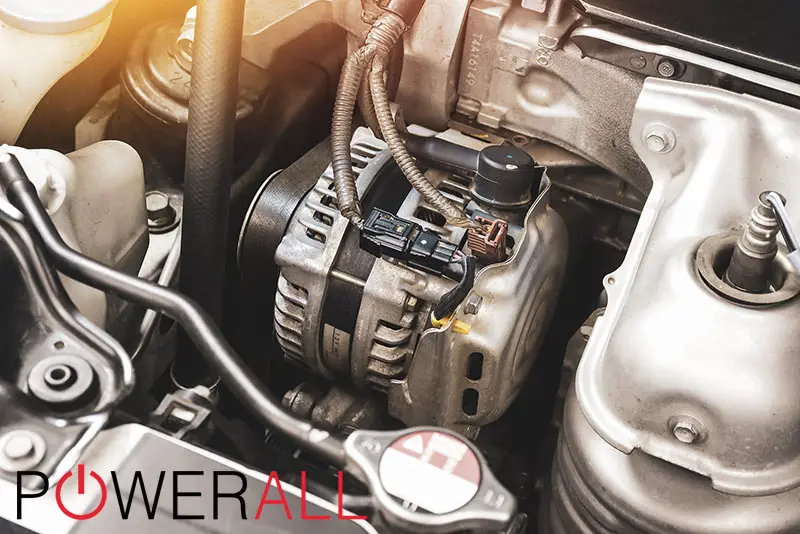
A car alternator is a device that generates electrical power to proper charge the battery and supply power to the electrical system while the engine is running. It works by converting mechanical energy from the engine into electrical energy.
The alternator produces an alternating current (AC) converted to direct current (DC) by a rectifier before being used by the car’s electrical system. The voltage output of the alternator is typically around 14 volts, which is used to charge the battery and run the car’s electronic components.
What Causes A Bad Car Battery Or Alternator?
The majority of people think that alternator or battery failure is the result of production flaws. This is true, but there are other factors at play as well, such as driving habits, extreme weather conditions, or loose wiring.
Driving Habits
Short trips and frequent starts can put additional strain on the battery, as it doesn’t have enough time to fully recharge. Similarly, long periods of inactivity can also cause the battery to lose its charge, leading to premature failure.
Aggressive driving habits, such as rapid acceleration and braking, can also put additional strain on the alternator, leading to premature wear and tear.
Extreme Weather
In hot temperatures, the heat can cause the battery to lose its charge more quickly, leading to premature failure. Meanwhile, extreme cold can also cause the battery’s electrolyte solution to freeze, damaging the battery’s cells and leading to permanent damage.
Harsh weather conditions can also lead to physical damage to the alternator, such as corrosion, water damage, or exposure to debris.
Loose Wiring
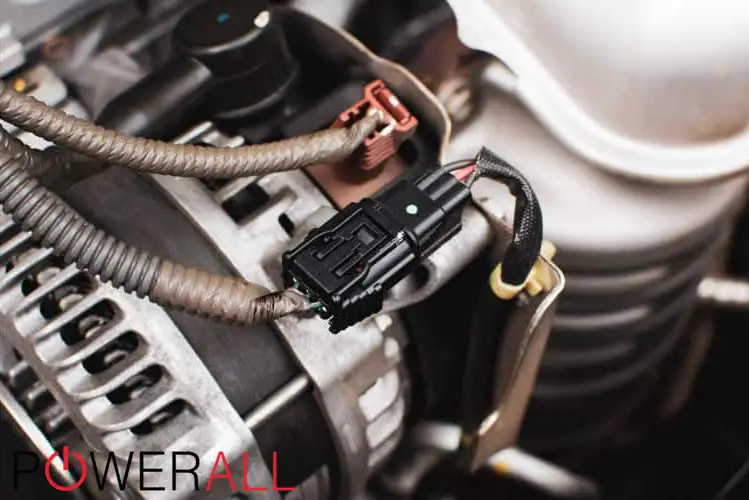
When wiring connections become loose, it can lead to poor electrical contact, which can cause voltage drops or spikes.
This can put additional strain on both the battery and alternator, potentially leading to premature failure. Loose wiring can also cause electrical shorts, which can damage the electric components of the vehicle.
Different Signs Of A Bad Alternator Vs Bad Battery
There are some obvious pointers of a faulty car battery and alternator, and understanding the difference between them can help you identify the issue and seek prompt repairs.
Signs Of A Bad Car Battery
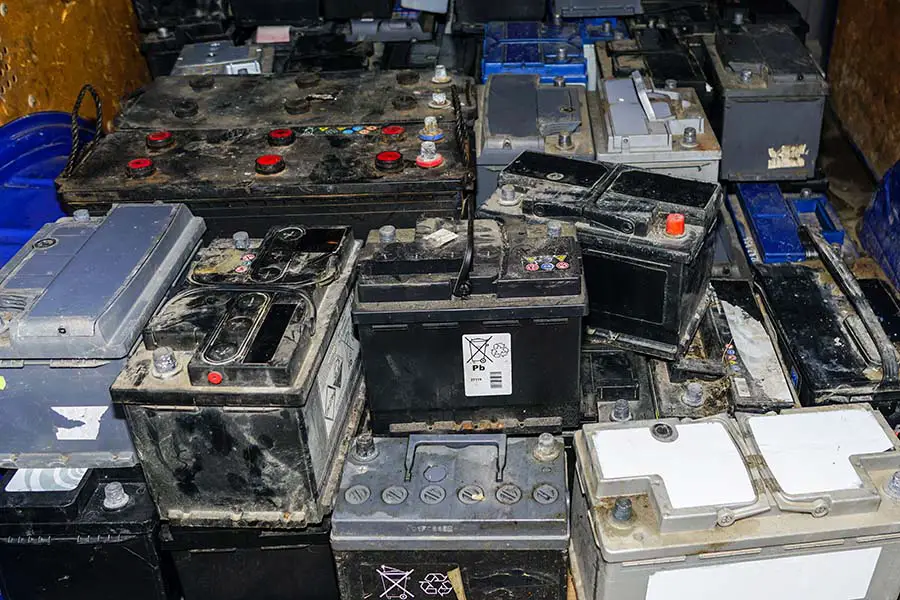
Here are some common symptoms of a malfunctioning battery.
Slow Cranking
When a car struggles to start, the most common cause is a dead or low-voltage battery. If you leave the interior lights and ignition on in your automobile overnight, this may occur. You run the danger of causing the cells to break if the battery runs entirely dry.
Dim Headlights
Your car’s headlights require a significant amount of power to operate. If your battery is struggling to supply enough energy, you may notice that your headlights are dimmer than usual, especially when you’re idling.
When your headlights don’t turn on, your electrical system may malfunction, or your car battery is dead.
Electrical Issues
Faulty batteries can also cause various electrical issues in your car. For example, you may notice that your radio or air conditioning system is not working properly or that your power windows are slow to operate.
These problems can be caused by a weak battery that is not able to provide sufficient power to these systems.
Swollen/Bloated Battery Case
In some cases, a bad battery can also cause physical changes to the battery case. Whenever you notice that the battery case looks bloated or swollen, there is a good chance of a short circuit happening inside.
This is a serious battery issue that requires immediate attention, as it can trigger the battery to leak or even explode.
Odd Smell
When an auto battery starts to go bad, it can produce a sulfur or rotten egg smell. This is caused by the battery’s internal components breaking down and releasing hydrogen sulfide gas.
A burning smell is also quite common, resulting from a short circuit or an overloaded electrical system.
Signs Of A Bad Alternator
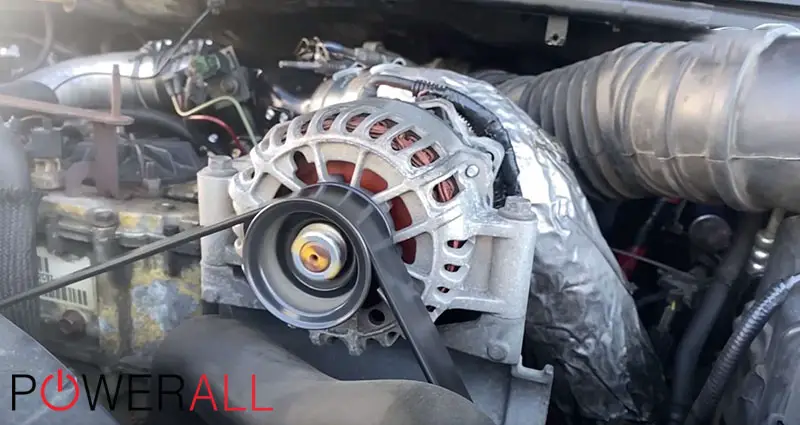
Below are the most common indicators of a faulty alternator.
Warning Light
An obvious signal of a bad alternator is when the battery warning light or check engine light comes on. This happens when the alternator is not generating enough power to charge the battery or when there is a problem with the alternator itself.
Flickering Lights
Once you notice that your headlights, dashboard lights, or other engine components are dimming or flickering, it could be a sign that your alternator is failing. This occurs because the alternator is not delivering enough energy to keep the electrical system running correctly.
Strange Noises
If you ever hear growling sounds coming from within your car, you may have alternator issues. The drive belt that rotates the alternator’s pulley might make a growling or whining noise if it becomes out of alignment or rubs against the pulley’s side. This sound may also be audible if the rotor shaft bearings are failing.
Dead Battery
A failing alternator can also cause the battery to lose its charge. If you notice that your automotive battery is weak or dead, even after a full charge, it could be a sign that your alternator is not working correctly.
Faulty Electrical Accessories
Frequently, slow or dysfunctional accessories are a sign that your alternator isn’t giving sufficient power to your car’s electronics. Your alternator may be faulty when you find that your windows are rolling up or down more slowly than usual.
Other symptoms include your seat warmers feeling odd and your speedometer or other devices start acting strangely.
Note: A faulty alternator will definitely destroy a battery, and it can’t be jump-started like the battery. So keep in mind these red flags to detect them soon so that you don’t end up replacing both the battery and the alternator.
How To Tell If Battery Or The Alternator Is Bad? Jumpstarting Test
The alternator or battery may be the cause of your car’s starting problems. Still, which one is the culprit? There is a relatively simple way to find out.
It’s crucial to understand how the automobile battery and alternator function together. When the engine is off, your car battery serves as the primary power source for a variety of tasks, including starting the vehicle.
When your engine is running, the car alternator assists in charging the battery. The efficient operation of your car depends on these two components, which work together to maintain the flow of power.
You might have a failed battery if your automobile won’t start at all. Suppose your vehicle temporarily begins and then stops abruptly, giving you a glimmer of hope that everything is alright; your alternator may be broken.
Take a jumper wire set and try to jumpstart your vehicle to determine if the problem is with the alternator or the dead battery.
Let’s say you can start the engine, but it shuts off quickly after. Then, your car’s alternator is probably incapable of recharging the battery. A dead battery, on the other hand, is most likely to blame if it struggles to start on its own but seems to recover when you jumpstart the automobile.
Frequently Asked Questions
Should I Continue Driving With A Bad Battery Or Alternator?
No, it is not recommended to continue driving with a bad battery or alternator because it can cause serious damage to your vehicle and potentially leave you stranded.
A bad battery can cause your car to stall or fail to start, and it can also cause damage to other components in your car’s electrical system, such as the alternator or starter.
Will A New Battery Start A Car With A Faulty Alternator?
No. Changing the battery won’t help the car start if your alternator is dead. Also, to test the alternator, the automobile must be operating, and its battery must be fully charged.
Can A Weak Battery Damage An Alternator?
Yes, a weak battery can damage an alternator. If the battery is weak, it may not be able to hold a charge or maintain the proper voltage level, which can cause the alternator to work harder than it should. Over time, this extra strain on the alternator can cause it to wear out or fail prematurely.
The Bottom Line
Understanding the warning signs of a bad battery vs alternator is crucial to keep your vehicle running smoothly and avoiding costly repairs. While the evident symptoms may sometimes overlap, there are specific indicators that can help you identify the problem.
Remember that a weak battery can revive by jump-starting, but a faulty alternator can only go to waste.

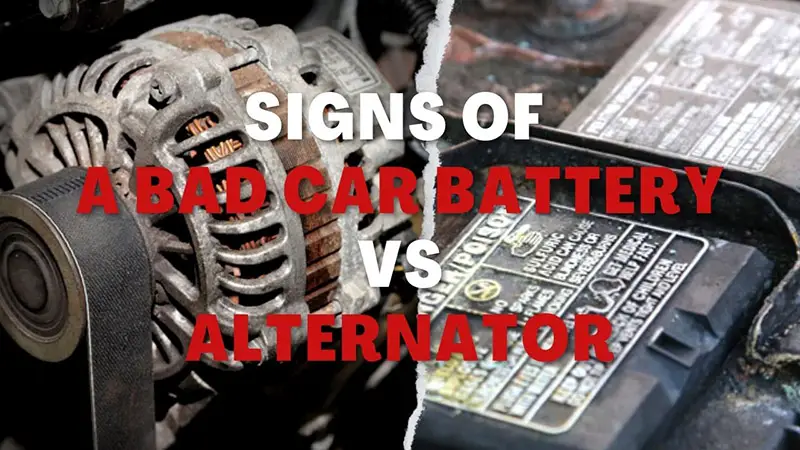

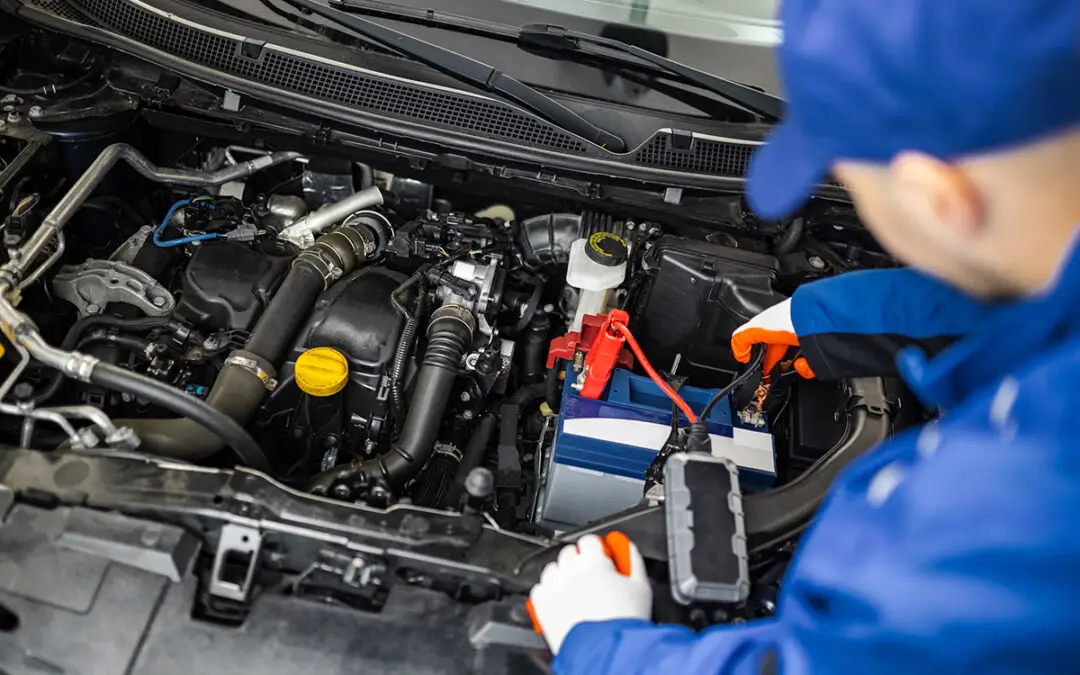




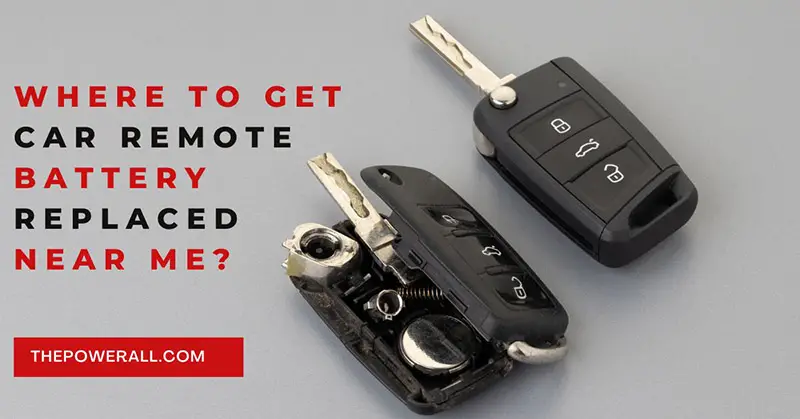
0 Comments